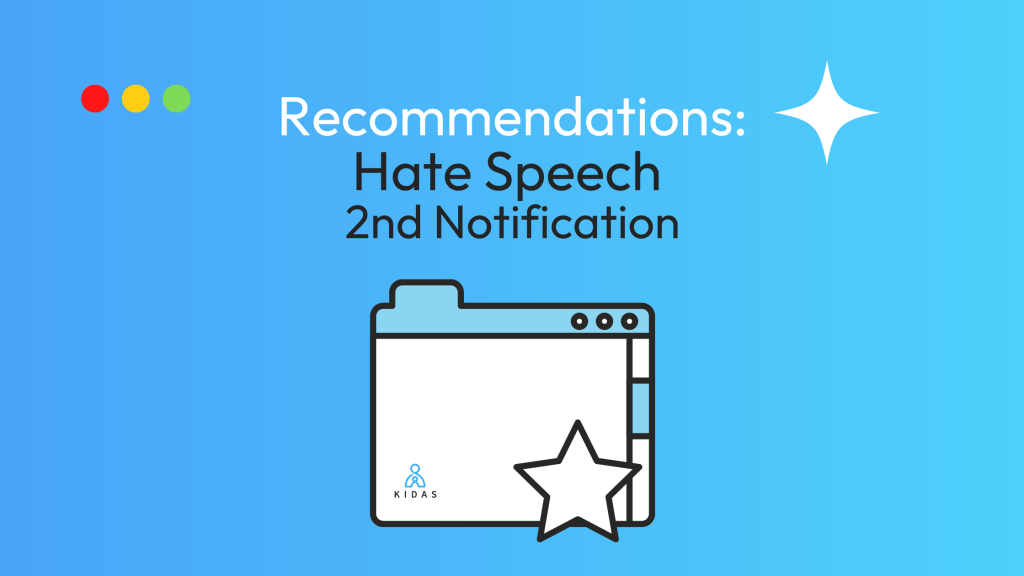The child expressed it.

Tips for conversation
1. Explain that you were notified again that your child had used language that was considered ‘Hate Speech,’ defined as abusive language based on prejudice against someone for their race, gender, nationality, religion, or sexual orientation.
2. If your child uses this language, they might have encountered these comments before, or they could have friends who are using these comments, even as a joke.
3. Using hate speech is very serious. Consider whether to remove your child’s gaming privileges or take some other action to convey that this behavior is unacceptable.
4. Tell them that you expect them to be respectful to others.
You can use our tips for conversation:
- Ask your child to think about what they may have said and share it with you. They may be too embarrassed or ashamed to tell you, and this is understandable. Approach the conversation calmly and let them know you would like to clarify your position and values related to hate speech.
- With younger children, they may have used hate speech without fully understanding the seriousness of it. Older children need to know that this kind of language can be considered harassment, which is a crime. Hate speech can be considered a crime if a person’s “verbal insult toward a group or a person includes a threat of violence or incitement of criminal activity.” https://www.ala.org/advocacy/intfreedom/hate
- Find out why they used this language in the game rather than choosing other words. This is a good chance to discuss that general cursing would be less hurtful/less serious than cursing or insulting someone based on gender, race, etc.
- Hate Speech is often used to belittle someone else or exert power over them, and tweens and teens should be taught not to respond this way to anyone, even when they’re angry.
- Think about your family values regarding hate speech and share them with your child. Here is a link to a website that can help you with this conversation: https://www.washingtonpost.com/lifestyle/2018/11/26/how-help-kids-recognize-handle-online-hate-speech/
Written by Kidas Experts